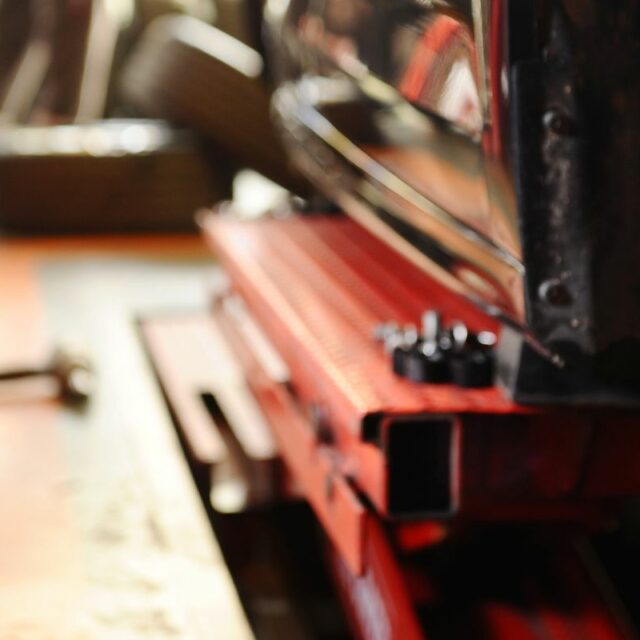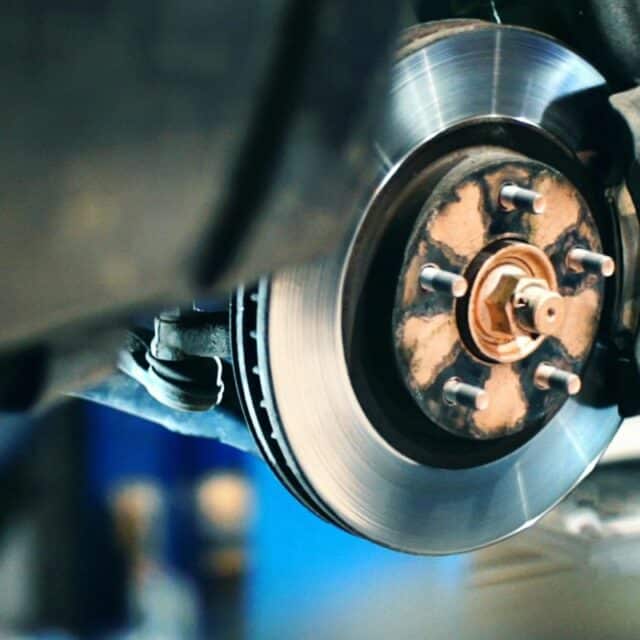How Often Should Brake Fluid Be Changed
If you are a car owner, there’s a high chance that you maintain your car to the utmost perfection. Be it keeping it clean, or making sure that the engine runs just as smoothly as if it were new. This includes staying on top of braking fluid as part of your annual maintenance checklist.
It’s important to maintain proper braking fluid to ensure that your vehicle stops the way you want it. In this article, we’ll discuss how often you must change your brake fluid and suggest ways to identify when it’s time.
Here's How Brake Fluid Works
Your car probably has hydraulic brakes unless it is an older make and model – in which case, set up an appointment with our auto care center for a brake check. These brakes are very common because they are quite efficient and therefore, found in most vehicles we see today. They do, however, demand proper maintenance to last long.
While it’s important to constantly check the structural integrity of disks and pads, forgetting to check the fluid is no option. Without the fluid, your brakes are of no use. This is because every time you push the pedal, you act upon the fluid which then acts on the brakes. Hydraulic brake systems are an essential component of modern vehicles and ensure smooth deceleration and reliable stopping power.
Why Brake Fluid Needs Changed
There is one major problem with these brakes fluid though, it is hygroscopic. This means that the fluid likes to absorb moisture, and the more moisture the fluid absorbs, the less effective it becomes. This is because with the addition of moisture, the boiling point of the fluid is lowered, and this makes a compromise in its quality.
Despite being a sealed system, the brake fluid, also referred to as hydraulic fluid, can become contaminated over time. This is often due to the additives in the fluid wearing out or moisture finding its way into the hydraulic brake system and affecting the fluid’s chemistry.
In case of a braking system malfunction, the fluid may overheat and boil, making it easier to boil with lower boiling points. Boiling results in the formation of air bubbles, causing the fluid to compress and lose its effectiveness. This can cause the brakes to become ‘soft’ and fail to work properly, particularly when the car is driven for extended periods on steep hills or race tracks, leading to brake fade.
The Dangers of Bad Brake Fluid
If the contaminated brake fluid is not addressed, it can have a significant impact on your vehicle’s braking performance. You may notice a soft or spongy feeling when you press the brake pedal, or your vehicle may take longer to stop when attempting a hard stop. These symptoms can be dangerous, particularly in emergencies, and should not be ignored.
If you suspect that your vehicle’s brake fluid may be contaminated, it’s important to have it checked by a qualified mechanic. Regular maintenance of your brake fluid can help ensure your vehicle’s braking system performs at its best, providing you with the confidence and security you need when driving.

How Often Should I Change My Brake Fluid
Every vehicle has a different time to change the brake fluid, and it’s best to follow your manufacturer’s suggestions. Normally, car manufacturers advise changing the brake fluid every two years, while others suggest having it changed every three years. Most manufacturers also suggest changing the fluid when a vehicle completes 45,000 km since purchase or the last brake fluid change.
Even if your braking fluid looks okay, changing it after a specified period won’t hurt you. It’s tough to always see the moisture since it’s acting at a microscopic level and the best way to check it is to contact a professional.
One important thing to know is that even if you’re not changing your braking fluid regularly, you must check it periodically. Performing a check every few weeks would be ideal.

When Should I Replace Brake Fluid
Brake fluid is a crucial component of any vehicle’s braking system. It is responsible for transmitting the force from the brake pedal to the brake pads, which in turn slows down or stops the vehicle. Therefore, it’s crucial to ensure that the brake fluid is in good condition at all times.
One of the most obvious signs that your brake fluid needs to be replaced is its appearance. Fresh brake fluid is typically clear or slightly yellowish, depending on the brand. However, over time, brake fluid can become contaminated with dirt, debris, and moisture, which can make it appear murky or dirty. If you notice that your brake fluid has become discolored, it’s time to replace it.
Another sign that your brake fluid needs to be replaced is a burnt smell. This smell usually indicates that the brake fluid has been exposed to high temperatures, causing it to break down and lose its effectiveness. If you notice a burnt smell coming from your brake fluid, it’s essential to have it checked by a qualified mechanic as soon as possible.
Low brake fluid levels can also be an indication that it’s time for a replacement. As brake pads wear down, the brake fluid level can drop, but if you notice that the level is consistently low, it could be a sign of a leak in the system. In such a case, it’s important to have the system checked by a mechanic.
Finally, if you notice that your brake pedal feels spongy or soft when pressed, it could be a sign of contaminated or worn-out brake fluid. The brake fluid’s ability to transmit pressure is essential to the braking system’s overall effectiveness, so it’s crucial to have the fluid checked if you experience any changes in the brake pedal’s feel.
To ensure that your brake fluid remains in good condition, it’s recommended that you have it checked and replaced as part of your vehicle’s regular maintenance schedule. A qualified mechanic can test the fluid’s quality and replace it if necessary, ensuring that your braking system remains safe and effective.

